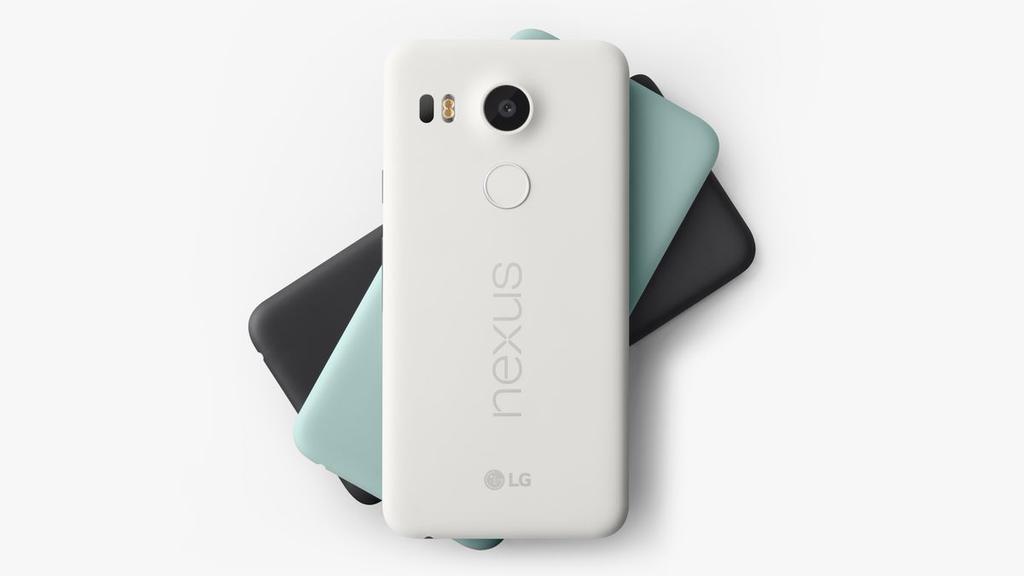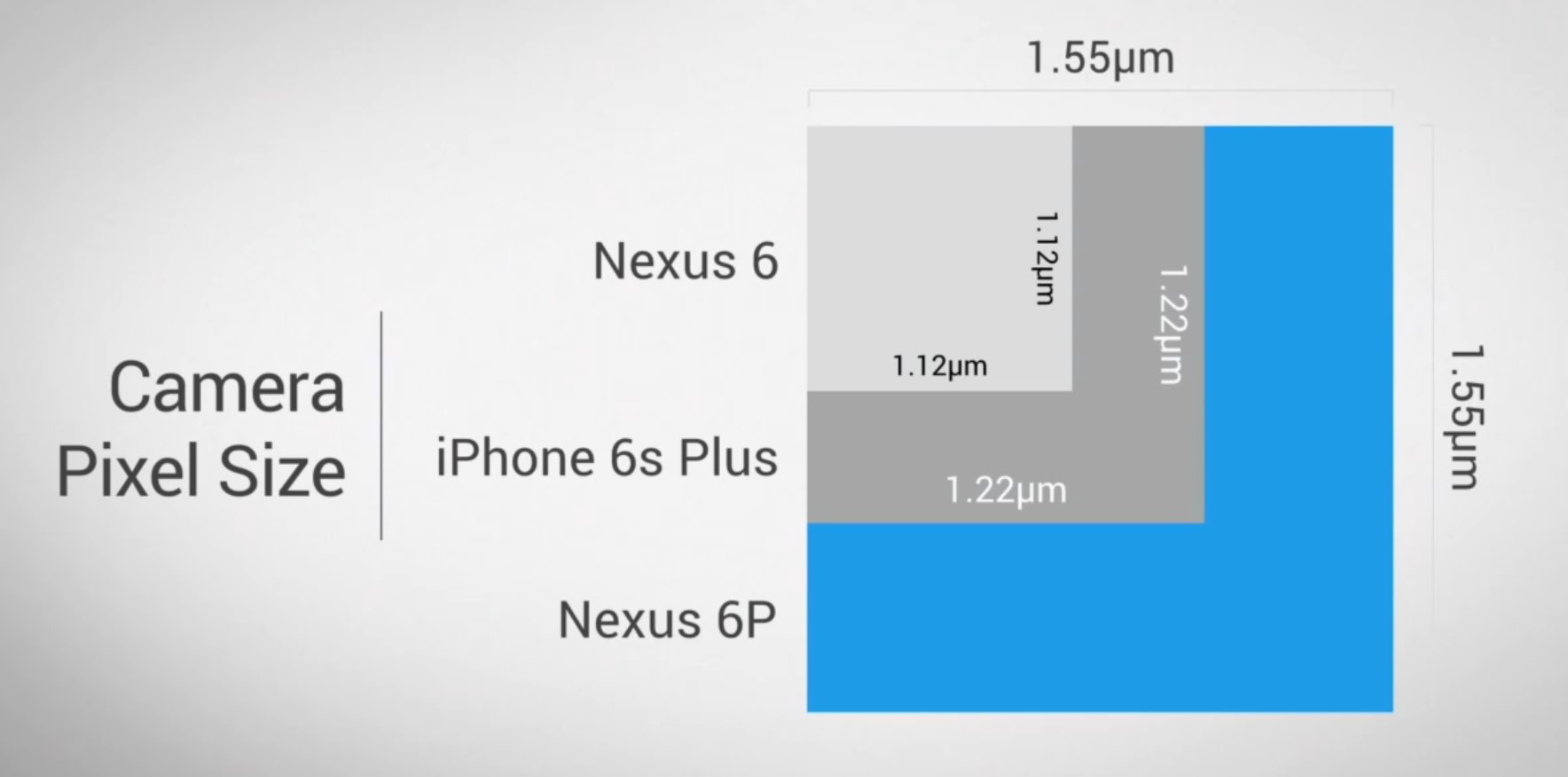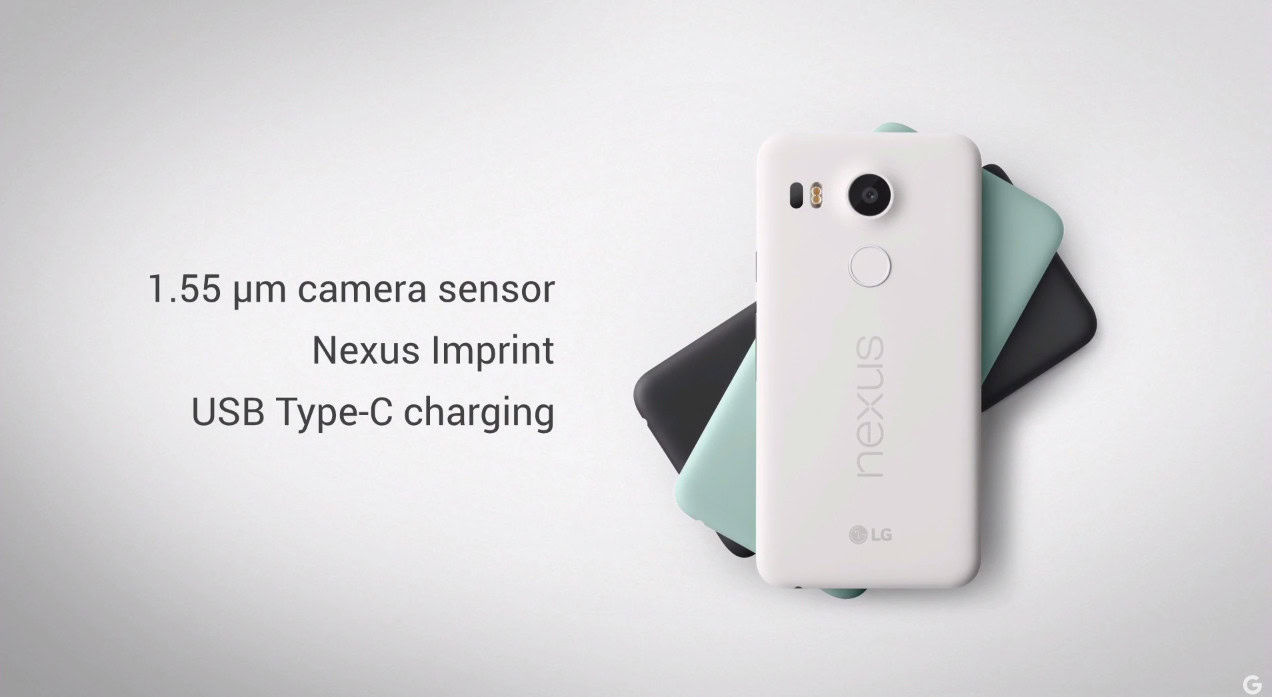Affiliate links on Android Authority may earn us a commission. Learn more.
Nexus 6P and 5X vs the competition
Published onSeptember 29, 2015

As expected, Google has just treated us to not one, but two new Nexus smartphones. The new ranges looks catered to performance enthusiasts without breaking the bank, with a flagship class Nexus 6P from HUAWEI and a high-end Nexus 5X. But let’s take a look at how these two smartphones stack up against the best that Android’s OEMs have to offer this year.
Just like last year’s Nexus 6, the Nexus 6P is a rather large beast, coming in at a fraction larger than the Galaxy S6 Edge+ and Xperia Z5 Premium. Featuring a 5.7-inch QHD resolution display and high-end Snapdragon 810 SoC, the Nexus 6P is clearly designed to compete with the hardware inside these very top tier devices and the specs slot right in with the very best of 2015. The Xperia Z5 Premium’s 4K display tops the spec sheets, but as this resolution is only realised in certain apps, there’s no major advantage to be had here. QHD is more than enough at 5.7-inches.
| Nexus 6P | Nexus 5X | Galaxy S6 Edge+ | Moto X Style | Xperia Z5 Premium | HTC One M9 | |
|---|---|---|---|---|---|---|
Display | Nexus 6P 5.7-inch AMOLED QHD (2560x1440) | Nexus 5X 5.2-inch LCD FullHD (1920x1080) | Galaxy S6 Edge+ 5.7-inch AMOLED QHD (2560x1440) | Moto X Style 5.7-inch QHD (2560x1440) | Xperia Z5 Premium 5.5-inch LCD 4K (3840x2160) | HTC One M9 5.0-inch LCD FullHD (1920x1080) |
SoC | Nexus 6P Snapdragon 810 | Nexus 5X Snapdragon 808 | Galaxy S6 Edge+ Exynos 7420 | Moto X Style Snapdragon 808 | Xperia Z5 Premium Snapdragon 810 | HTC One M9 Snapdragon 810 |
CPU | Nexus 6P 4x 2.0GHz Cortex-A57 4x 1.5GHZ Cortex-A53 | Nexus 5X 2x 2.0GHz Cortex-A57 4x 1.4GHz Cortex-A53 | Galaxy S6 Edge+ 4x 2.1GHz Cortex-A57 4x 1.5GHz Cortex-A53 | Moto X Style 2x 1.8GHz Cortex-A57 4x 1.4GHz Cortex-A53 | Xperia Z5 Premium 4x 2.0GHz Cortex-A57 4x 1.5GHZ Cortex-A53 | HTC One M9 4x 2.0GHz Cortex-A57 4x 1.5GHZ Cortex-A53 |
GPU | Nexus 6P Adreno 430 | Nexus 5X Adreno 418 | Galaxy S6 Edge+ Mali-T760 MP8 | Moto X Style Adreno 418 | Xperia Z5 Premium Adreno 430 | HTC One M9 Adreno 430 |
RAM | Nexus 6P 3GB | Nexus 5X 2GB | Galaxy S6 Edge+ 4GB | Moto X Style 3GB | Xperia Z5 Premium 3GB | HTC One M9 3GB |
Storage | Nexus 6P 32/64/128GB | Nexus 5X 16/32GB | Galaxy S6 Edge+ 32/64/128GB | Moto X Style 16/32/64GB | Xperia Z5 Premium 32GB | HTC One M9 32GB |
MicroSD | Nexus 6P No | Nexus 5X No | Galaxy S6 Edge+ No | Moto X Style Yes, up to 128GB | Xperia Z5 Premium Yes, up to 200GB | HTC One M9 Yes, up to 128GB |
Cameras | Nexus 6P 12.3MP rear 8MP front | Nexus 5X 12.3MP rear 5MP front | Galaxy S6 Edge+ 16MP rear 5MP front | Moto X Style 21MP rear 5MP front | Xperia Z5 Premium 23MP rear 5MP front | HTC One M9 20MP rear 4MP front |
Battery | Nexus 6P 3,450mAh | Nexus 5X 2,700mAh | Galaxy S6 Edge+ 3,000mAh | Moto X Style 3,000mAh | Xperia Z5 Premium 3,430mAh | HTC One M9 2840mAh |
The Nexus 5X is a smaller handset, which is sized nicely between the likes of the HTCOne M9 and the LG G4. The 5X features a 5.2-inch 1080p display rather than the QHD resolution of its larger brother, but this still results in a very reasonable 423 pixels per inch. The handset also features a slight downgrade to its processor, opting for the hexa-core Qualcomm Snapdragon 808, as seen in handsets like the LG G4 and Moto X Pure Edition (Style), rather than the very top tier Snapdragon 810.
Much like the display, the day-to-day difference is not going to be noticeable here. However, gamers may find that the Adreno 418 doesn’t quite provide the same oomph at 1080p as the HTCOne M9’s Adreno 430, but performance shouldn’t be sluggish.

When it comes to RAM, Google has opted for a little less than some top-tier manufacturers, offering just 2GB in the Nexus 5X. While stock Android may not be as resource hungry as some of the custom OEM UIs out there, 2GB of RAM seems like a bit of a cut corner considering that the Snapdragon 808 doesn’t support faster LPDDR4 memory either. While performance is unlikely to suffer in any meaningful way, we will have to see if loading up larger apps and games or heavy multitasking causes some slight delay on the 5X.
I don’t think I need to remind you about the fuss that LG and Samsung made over their camera technology this year, and these new Nexus smartphones are no exception to this trend. However, the two phones are going about it rather differently, opting for a more reserved 12 megapixel count and a big focus on low light performance.
On the spec sheet we can spot a familiar f/2.0 aperture but a larger 1.55µm cell size, allowing for more light to reach each pixel at the expense of total pixel count. Popular smartphone image sensors, such as the Sony Exmor RS IMX234 or IMX240 found in many flagships, feature a smaller 1.12μm cell size. It will be very interesting to see how this sensor stacks up against the competition in some side by side shots.

The Nexus 6P also features laser auto focus technology for the rear camera, which allows for super-fast focusing on nearby objects. Oddly this is missing from LG’s Nexus 5X. Selfie lovers may get a little extra use out of the 6P’s 8 megapixel front facing camera, while the 5X’s 5MP front facing camera is a rather typical resolution these days. The f/2.2 aperture and 1.4μm cell size should produce good results in less than ideal lighting conditions as well.
Finally, the last specification on our table is battery capacity. Both the new Nexus phones are rather typical, with the additional space in the 6P allowing for a larger 3,450mAh capacity, while the 5X makes do with a still very reasonable 2,700mAh cell.
| Nexus 6P | Nexus 5X | Galaxy S6 Edge+ | Moto X Style | Xperia Z5 Premium | HTC One M9 | |
|---|---|---|---|---|---|---|
LTE | Nexus 6P Category 6 | Nexus 5X Category 6 | Galaxy S6 Edge+ Category 6 | Moto X Style Category 6 | Xperia Z5 Premium Category 6 | HTC One M9 Category 6 |
Fast Charge | Nexus 6P Yes | Nexus 5X Yes | Galaxy S6 Edge+ Yes | Moto X Style Quick Charge 2.0 | Xperia Z5 Premium Quick Charge 2.0 | HTC One M9 Quick Charge 2.0 |
Wireless Charge | Nexus 6P No | Nexus 5X No | Galaxy S6 Edge+ Qi & PMA | Moto X Style No | Xperia Z5 Premium No | HTC One M9 No |
Fingerprint Scan | Nexus 6P Yes | Nexus 5X Yes | Galaxy S6 Edge+ Yes | Moto X Style No | Xperia Z5 Premium Yes | HTC One M9 No |
Dimensions | Nexus 6P 159.4 x 77.8 x 7.3 mm | Nexus 5X 147.0 x 72.6 x 7.9 mm | Galaxy S6 Edge+ 154.4 x 75.8 x 6.9 mm | Moto X Style 153.9 x 76.2 x 11.1 mm | Xperia Z5 Premium 154.4 x 75.8 x 7.8 mm | HTC One M9 144.6 x 69.7 x 9.6 mm |
Weight | Nexus 6P 178g | Nexus 5X 136g | Galaxy S6 Edge+ 153g | Moto X Style 179 g | Xperia Z5 Premium 180g | HTC One M9 157 g |
Price | Nexus 6P $500 | Nexus 5X $379 | Galaxy S6 Edge+ $700 | Moto X Style $400 | Xperia Z5 Premium ~$700 (est) | HTC One M9 $650 |
There are plenty of high performance smartphones out there which won’t cost you an arm and a leg. The extra features are the real separators these days, and it is here that these new Nexus phones have upped their game.
Fingerprint technology has become a big hit this year, and the 6P and 5X are keeping pace with Samsung and Sony. LG and HTCare still behind with this technology, as it is absent from their latest flagships, and the added security is certainly worth thinking about, following the rollout of Android Pay. There’s also USB Type-C support in with both of the new Nexus phones.
For storage, 16GB as the basic option with the Nexus 5X is a little disappointing, and the Nexus 6P is certainly the high-end choice. While microSD cards are still disappointingly missing from the Nexus line-up, Quick Charge 2.0 can be seen across the range. Wireless charging still remains a niche that only Samsung and LG seem interested in addressing, while Sony is still the OEM to opt for if you care about IP certifications for water and dust resistance.

The Nexus 6P pulls ahead with a few unique features of its own. Build quality has also taken a step up this generation, with an all-metal chassis that rivals high-end builds from Samsung and HTC. There is also a dual-front facing speaker setup on the 6P that should hopefully give HTCa rival when it comes to speaker audio quality.
Of course, one of the big benefits of the Nexus series that you can’t find anywhere else is fast updates. The Nexus 6P and 5X will also be the first to offer Android 6.0 Marshmallow out of the box, which is definitely worth considering if you have to have the latest software as well as hardware.
Overall, both of the two new Nexus smartphones pack in some rather good hardware, but it’s the Nexus 6P that has the best showing against the top Android phones of 2015. The Nexus 6P edges out the 5X in a few areas, particularly when you look at the storage options, but these two devices offer rather good value for money. Of course, there’s plenty of competition at this price point, and the likes of the Moto X Pure Edition are certainly worth a look too.
What do you think of Google’s latest flagship offerings? How do they compare to the competition?